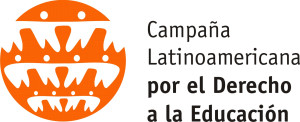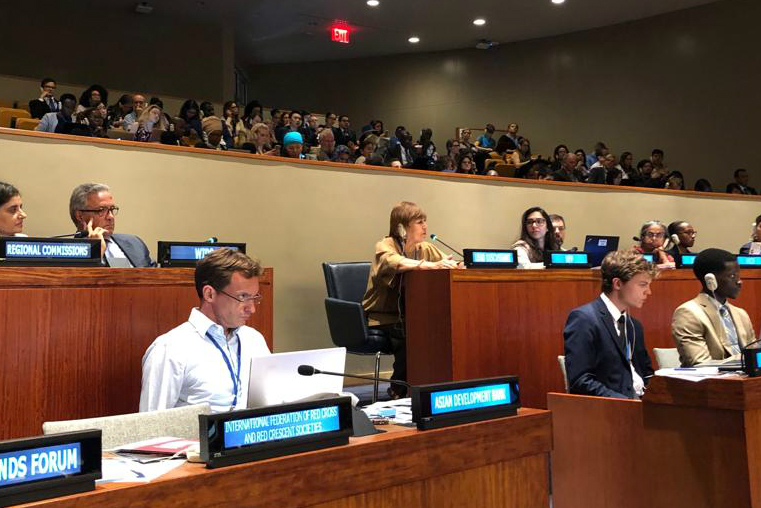
Review of SDG 4: “Quality education must be centered on people and their dignity”
July 10, 2019Yesterday, the review of the Sustainable Development Goal number 4 (SDG 4), about education, was initiated at the United Nations, within the framework of the High Level Political Forum, which takes place until July 18 in New York, USA.
Three hours of debate were dedicated to look at the situation of the right to education worldwide with the participation of representatives from different countries, as well as from different sectors of civil society, among them indigenous people, children and youth, Lesbian, Gay, Bisexual, Trans and Intersex (LGBTI) people and persons with disabilities.
“The diversity of civil society representatives and interventions emphasized an intersectoral perspective of education, which represents a fundamental advance comparing to the debates on the 2030 Agenda that took place in previous years,” said Camilla Croso, general coordinator of the Latin American Campaign for the Right to Education (CLADE), which accompanies the event in New York.
The participation of GCE vice president and coordinator of the Peruvian Campaign for the Right to Education (CPDE), Madeleine Zúñiga, was another highlight of this first panel on SDG 4. In her speech, she pointed out that “education is a powerful instrument to transform lives and, therefore, transform the world; not any education, but one that promotes sustainable development, social justice, truly democratic societies, global citizenship and the culture of peace that the whole world requires.”
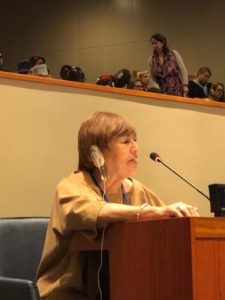
Madeleine Zúñiga emphasized that a quality education must be centered on people and their dignity, assuming the multiple dimensions of diversity to design models and relevant strategies according to the characteristics of different societies. She added that it is fundamental to ensure the right to lifelong education and solid teacher training, within the framework of human rights and comprehensive and muti-sectorial educational attention; as well as bigger and better investment in public education.
“That requires a substantive improvement of tax rules and a strong political will to fight against tax evasion and avoidance, and to achieve tax justice, as well as to face the increasing privatization, an unregulated process that is allowing profit interests in education. Low-cost and low-quality private schools, with poorly paid teachers, not only violate the right to education, but also deepen the inequalities,” she said.
Download the intervention of Madeleine Zúñiga (In Spanish)
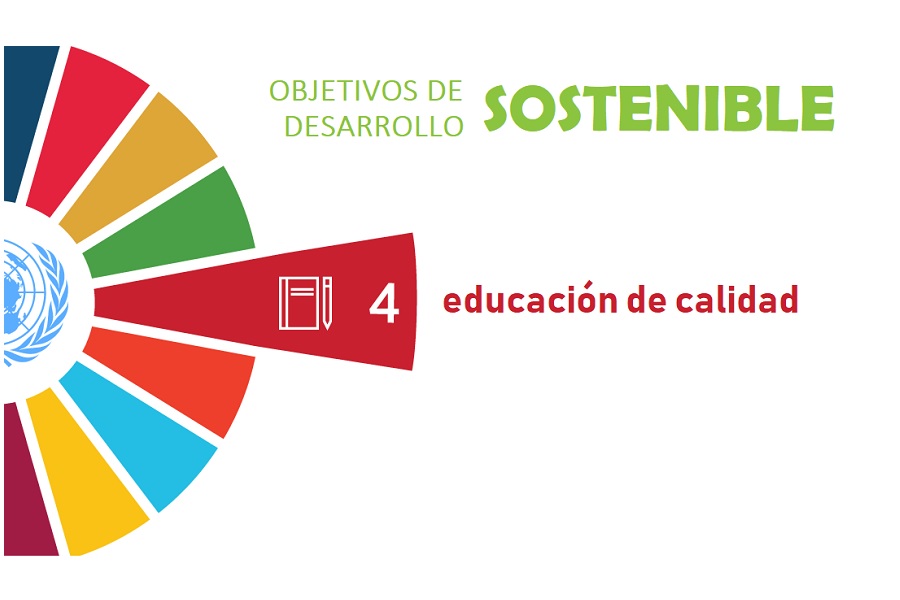
Organizations from Latin America and the Caribbean demand UN to include SDG 4 in the draft of the declaration of the High Level Political Forum
June 5, 2019“It is with great concern that the networks and civil society organizations that work for the realization of the human right to education in Latin America and the Caribbean review the “zero draft” of the Political Declaration of the High Level Political Forum (HLPF) and note the total absence of State commitments in education and the acknowledgement of its crucial importance in the scope of the SDGs, human rights, democratic strengthening and peace”.
These words were presented in a letter signed by the Latin American Campaign for the Right to Education (CLADE) and other networks, coalitions and civil society organizations in Latin America and the Caribbean, which was sent today (6 June) to United Nations authorities, with the purpose of advocacing for the inclusion of references to the SDG 4 in the Political Declaration of the High Level Political Forum.
The FPAN is the official platform for monitoring compliance with the SDGs worldwide, and is carried out within the UN, focusing each year on the monitoring of specific Objectives of the Agenda, as well as the analysis of voluntary national reviews presented by the Member States
The next edition of the Forum will take place from July 9 to 18 of this year in New York, with an emphasis on the revision of SDG 4, as well as Objectives of number 8 (decent work and economic growth), 10 (reduction of inequalities), 13 (action for climate), 16 (peace, justice and solid institutions) and 17 (partnerships to achieve the objectives).
With the letter sent to the UN, organizations and networks demand the inclusion of SDG 4 in the next versions of the declaration. “We hope that this absence will be overcome in the following versions of the Declaration, so that the United Nations can transmit to the whole world, in a clear and forceful way, the importance of education for peace, justice, environmental sustainability, dignity, as well as the overcoming of patriarchy and all forms of discrimination. Education is key to promoting the implementation of the 2030 Development Agenda in its integrity, and we hope this be acknowledged by the High Level Political Forum”, says Camilla Croso, general coordinator of CLADE.
Read the full letter below.
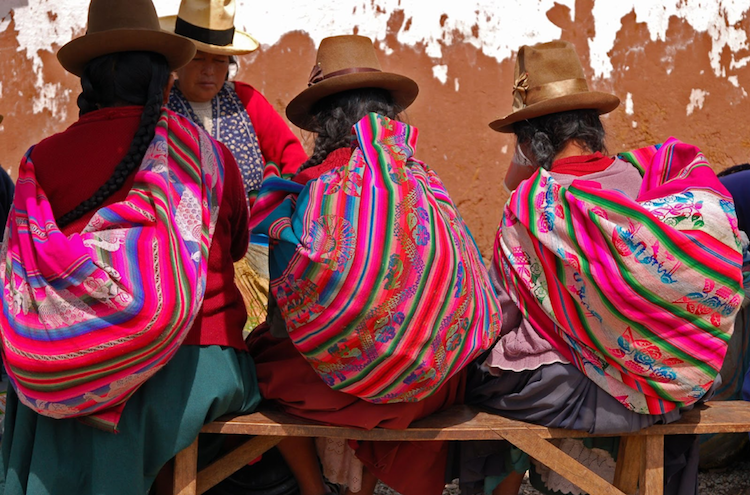
The Right To Education With Gender Equality
March 15, 2019Legal and political advances to ensure gender equality in education find strong obstacles to their implementation in schools in various countries of Latin America and the Caribbean due to cultural barriers, a lack of governmental will and the advance of fundamentalist conservative and religious trends, among other factors of exclusion and inequality that affect girls and women. (more…)
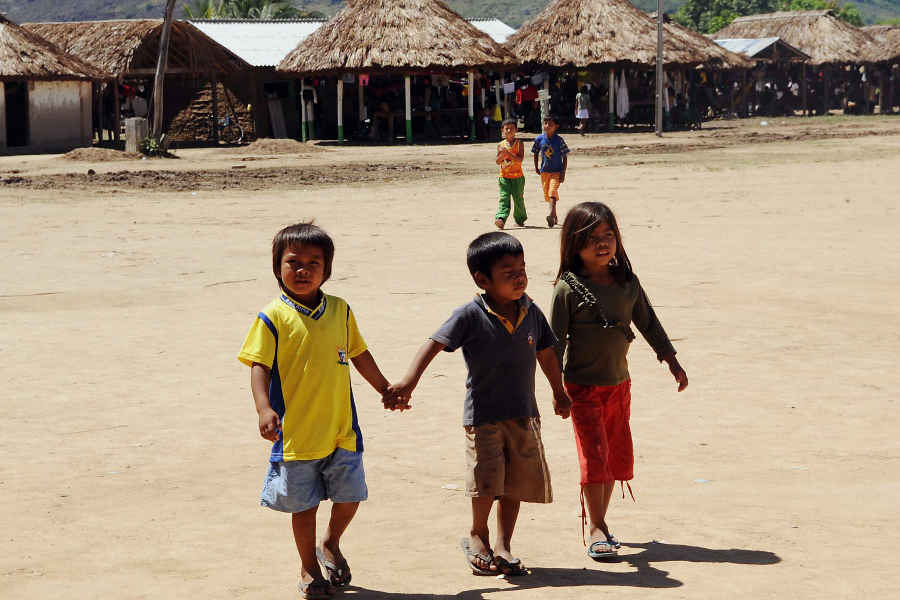
G20 and education: CLADE’s fight for adequate resources for this right
February 7, 2019Activists from Latin America and the Caribbean promoted actions of advocacy, mobilization and communication in the context of the G20, making the world’s largest economies recognize education as an essential human right to promote development with inclusion, prosperity and peace (more…)
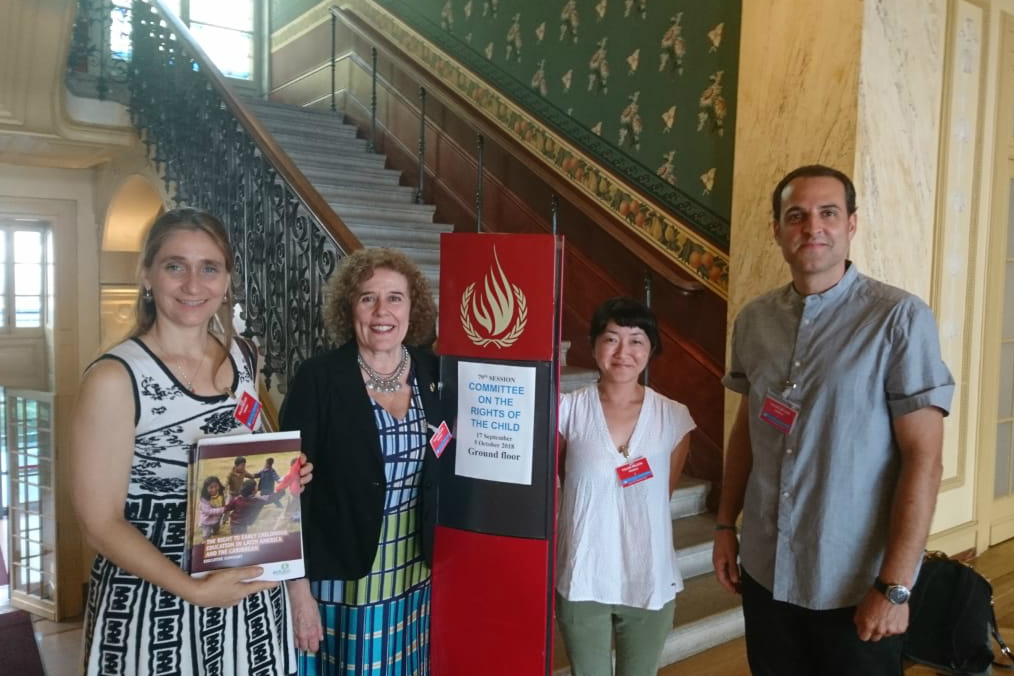
Organizations defend the right to education and care in early childhood in hearing at the Committee on the Rights of the Child
September 21, 2018Based on a study conducted in Latin America and the Caribbean, representatives of CLADE, OMEP and EDUCO presented challenges and recommendations
Representatives of the Latin American Campaign for the Right to Education (CLADE), the World Organization for Early Childhood Education (OMEP) – Regional Vice Presidency for Latin America – and the EDUCO Education and Cooperation Foundation participated on September 18th in a hearing at the Committee of the Rights of the Child of the UN, in Geneva, Switzerland. In this occasion, they defended the full realization of the Convention on the Rights of the Child (CRC), as well as the promotion of a coordinated, comprehensive and multisectoral approach to care and education in early childhood.
The proposals are the result of the study “The right to education and care in early childhood: perspectives from Latin America and the Caribbean”, a joint initiative of the organizations. The research reveals that, although the General Laws of Education in the region recognize education as a human right and the State as guarantor of its full exercise from early childhood, with different starting points, fragmentation and dispersion of the policies and practices for this educational stage persist, as well as the absence of adequate financing.
The need to deepen the relevance and priority of Early Childhood Care and Education (ECCE, conceived for children from 0 to 8 years of age) in the legal, political, budgetary and institutional frameworks is pointed out, so that they have a greater root in the best interests of the child and grant a greater protection to their rights. “We defend a comprehensive approach to care and education in early childhood from birth to 8 years, emphasizing its inherent value over the preparation for the next educational stages,” said Mercedes Mayol Lassalle, from OMEP.
This study demonstrates the insufficient development of state policies from birth to 3 years of life – which means that for many families and children early childhood education and care is still a privilege and not a right, further widening social gaps in an already unequal region such as Latin America and the Caribbean.
Likewise, insufficient coverage in the ECCE is identified and reported, which especially affects the more economically fragile social sectors, as well as an inadequate infrastructure for this educational stage in terms of security and accessibility for all. It is also pointed out that the gratuity of the ECCE is still not guaranteed for everyone in the region, and that there is still a need to advance in the formation and appreciation of teachers of this educational stage.
A concern expressed to the Committee it’s the growing tendency to focus on the successes of an academic nature, which also leads to the submission of increasingly small children to standardized tests, denying their rights of play, creativity, cooperation, self-confidence and autonomy. “This tendency goes against the principles of the CRC and its General Observations, in particular the principle of the evolution of the faculties of the child,” said Mikel Egibar, from EDUCO.
In this context, the organizations recommend: that the principles of the CRC inform, in a more comprehensive and coherent manner, the legal, political and budgetary frameworks related to education and care in early childhood; that the human right to education of children from birth to 3 years old is fully guaranteed; that forms of evaluation and educational models of ECCE are developed respecting the specific characteristics of this stage of life, as well as the concepts and purposes of education foreseen in the CRC; and the strengthening of public and universal early childhood education and care systems as a way to overcome inequalities and discrimination.
CLADE, OMEP and EDUCO urged the Committee to support the Member States in the realization of the right to education in early childhood, in dialogue with other relevant actors, developing guidelines for the articulation of their General Comments to the ECCE policies; and requesting reliable and solid information from the States of Latin America and the Caribbean, about how they are guaranteeing this right.
“We reassured to the Committee our commitment with the realization and progress of the right to education and care in early childhood in our region, and our willingness to continue collaborating and dialoguing in that regard,” said Camilla Croso, general coordinator of CLADE, at the close of the hearing.
Full study – The full investigation, entitled “The right to education and care in early childhood: perspectives from Latin America and the Caribbean”, will be launched virtually on October 18th, 2018, at 12h00 in Brazil (GMT -3), with a virtual seminar featuring Jorge Cardona Llorens, member of the UN Committee on the Rights of the Child, as well as other guests.
Download the Executive Summary:
The Committee on the Rights of the Child – It is a body of independent experts that oversees the implementation of the UN Convention on the Rights of the Child by its States Parties. The Committee also oversees the implementation of the optional protocols of the Convention, regarding the participation of children in armed conflicts and the sale of children, child prostitution and the use of children in pornography. All States Parties must submit periodic reports to the Committee about how they are implementing these rights. Initially, the States must submit a report two years after their admission to the Convention, followed by reports every five years. The Committee examines the reports and expresses its concerns and recommendations to the States Parties in the form of “final observations”.





